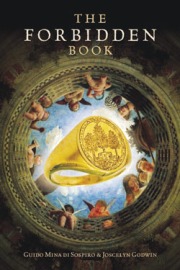
Introducing Empedocles, Nietzsche, and Nihilism
“So much depends on the development of the Greek culture because our entire occidental world has received its initial stimuli from it […] There are very many possibilities which have not yet been discovered because the Greeks did not discover them. And others have discovered the Greeks and later covered them up again.” ~ Nietzsche
In his introduction to Heidegger’s Early Greek Thinking, David Krell talks about the history of philosophy in terms of a “nightmare from which we, Dedalus-like, are trying to awake,” unfortunately, as he observes, “indignant refusal and consignment to oblivion are hardly signs of wakefulness” (7). What follows is not however, an interpretation of Heidegger’s engagement with Pre-Socratic thought, if it were, we would be looking at the fragments of Anaximander, Heraclitus, and Parmenides. Rather, I choose to focus on Empedocles, perhaps for one of the reasons Nietzsche found so appealing, namely, Empedocles attempts to “lead humanity across [the bridge] to the universal friendship (koina ton philon) of the Pythagoreans and thus to social reform” (113).[1] Although the issue of social reform on a grand scale is beyond the modest scope of these thoughts, I examine Empedocles’ thought as it moves through Nietzsche’s modern philosophy with the hope of reawakening and reinvigorating the authentic need and drive to philosophize by attempting to understand more clearly what the ancient Greek’s relationship to his world, and by extension, others, might have been like. I want to consider the value and potential in the thought of Empedocles and Nietzsche for inspiring thinking in other directions beyond our contemporary nihilistic condition as Hubert Dreyfus outlines, which might offer a new understanding of who we are in relation to the way in which we inhabit the world.

 Politics over the last hundred years has been highly resistant to mythic or legendary considerations.
Politics over the last hundred years has been highly resistant to mythic or legendary considerations.











